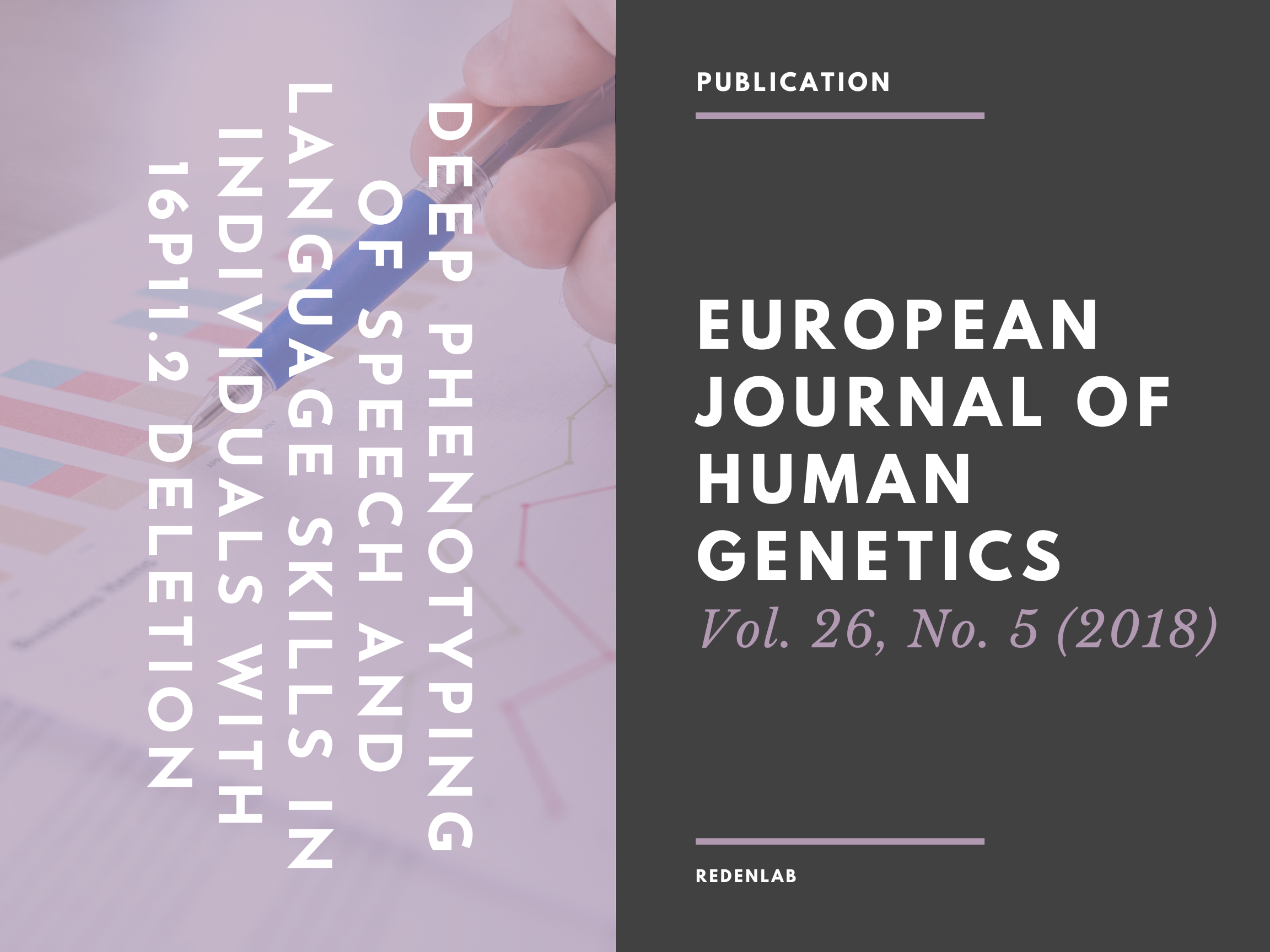SCIENCE: Deep phenotyping of speech and language skills in individuals with 16p11.2 deletion

Recurrent deletions of a ~600-kb region of 16p11.2 have been associated with a highly penetrant form of childhood apraxia of speech (CAS). Yet prior findings have been based on a small, potentially biased sample using retrospectively collected data. We examine the prevalence of CAS in a larger cohort of individuals with 16p11.2 deletion using a prospectively designed assessment battery. The broader speech and language phenotype associated with carrying this deletion was also examined. 55 participants with 16p11.2 deletion (47 children, 8 adults) underwent deep phenotyping to test for the presence of CAS and other speech and language diagnoses. Standardized tests of oral motor functioning, speech production, language, and non-verbal IQ were conducted. The majority of children (77%) and half of adults (50%) met criteria for CAS. Other speech outcomes were observed including articulation or phonological errors (i.e., phonetic and cognitive-linguistic errors, respectively), dysarthria (i.e., neuromuscular speech disorder), minimal verbal output, and even typical speech in some. Receptive and expressive language impairment was present in 73% and 70% of children, respectively. Co-occurring neurodevelopmental conditions (e.g., autism) and non-verbal IQ did not correlate with the presence of CAS. Findings indicate that CAS is highly prevalent in children with 16p11.2 deletion with symptoms persisting into adulthood for many. Yet CAS occurs in the context of a broader speech and language profile and other neurobehavioral deficits. Further research will elucidate specific genetic and neural pathways leading to speech and language deficits in individuals with 16p11.2 deletions, resulting in more targeted speech therapies addressing etiological pathways.
Click here for more details.
